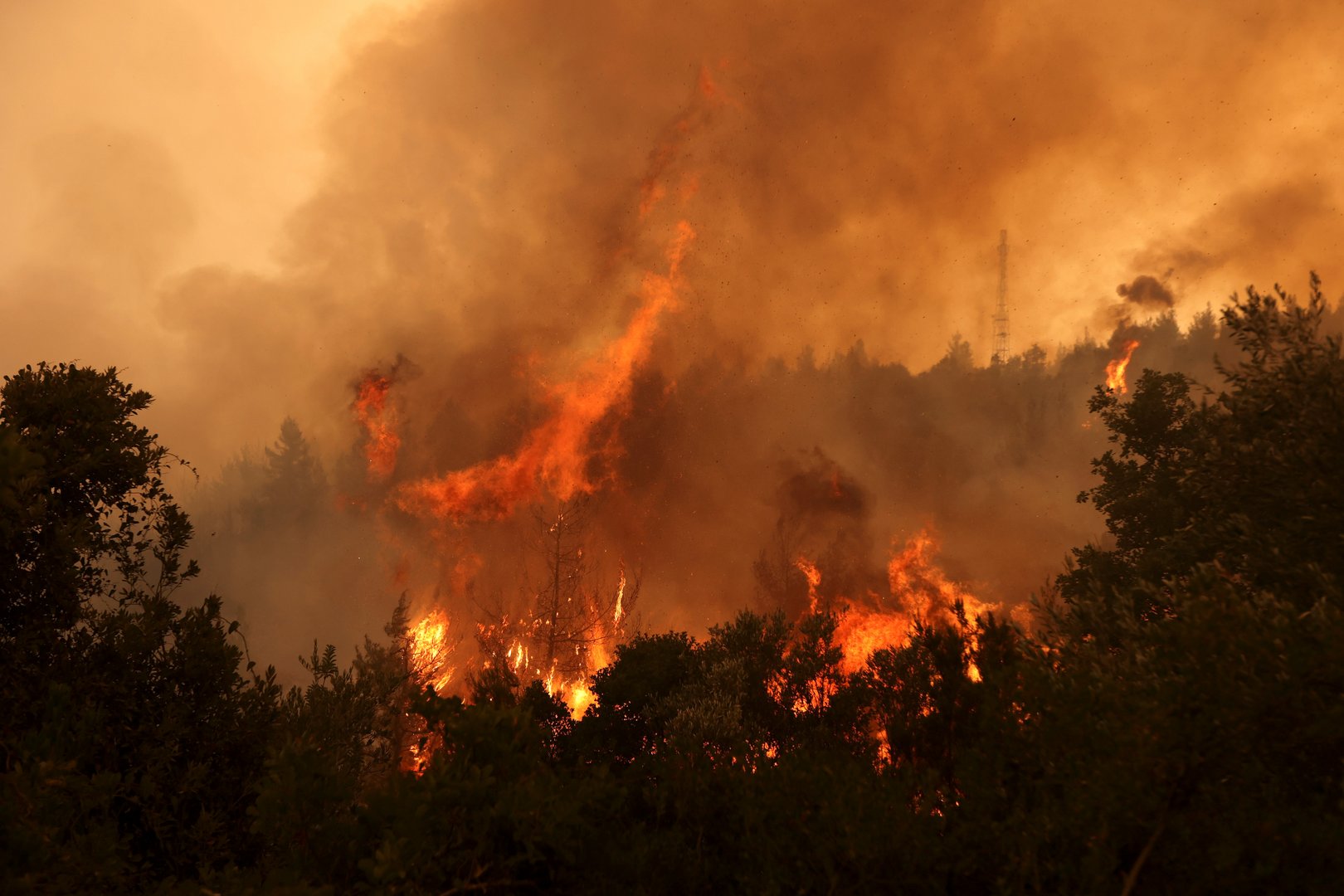More than 200 firefighters backed up by helicopters and water-carrying planes battled a wildfire on Greece’s second-biggest island of Evia for a second day on Tuesday as authorities ordered the evacuation of two villages.
The fire broke out near the village of Petries in the centre of the island at about 3 p.m. (1200 GMT) on Monday and strong winds fuelled its spread.
While the situation had slightly improved on Tuesday, flare ups remain a risk due to the windy conditions, a fire service spokesperson said.
Thirteen aircraft and six helicopters were at the scene on Tuesday about 60 km (37 miles) northeast of the capital, Athens. A coastguard vessel was on standby overnight for possible evacuations by sea.
“It was – and is – a difficult fire as it started in a difficult spot,” Climate Crisis and Civil Protection Minister Vassilis Kikilias, who travelled to Evia late on Monday, was quoted as saying by state broadcaster ERT.
Wildfires in Greece have become more frequent in recent years during increasingly hot, dry summers that scientists link to climate change. Last year, more than 8,000 blazes broke out, fire brigade data shows.
Prime Minister Kyriakos Mitsotakis said Greece had been dealing with “a very difficult summer” in terms of climate conditions.
“We still have a very difficult month, August, ahead of us and obviously we all need to be on high alert,” he told ministers during a cabinet meeting.
Since May, hundreds of wildfires have burned across the country, which just recorded its hottest June on record and its longest heatwave. Blazes have been turbocharged by strong winds and drought in several parts of the country.
In 2021, a devastating wildfire raged for nearly a week in northern Evia, turning more than 115,000 acres (46,500 hectares) of land into ashes, destroying homes and killing animals.







Click here to change your cookie preferences